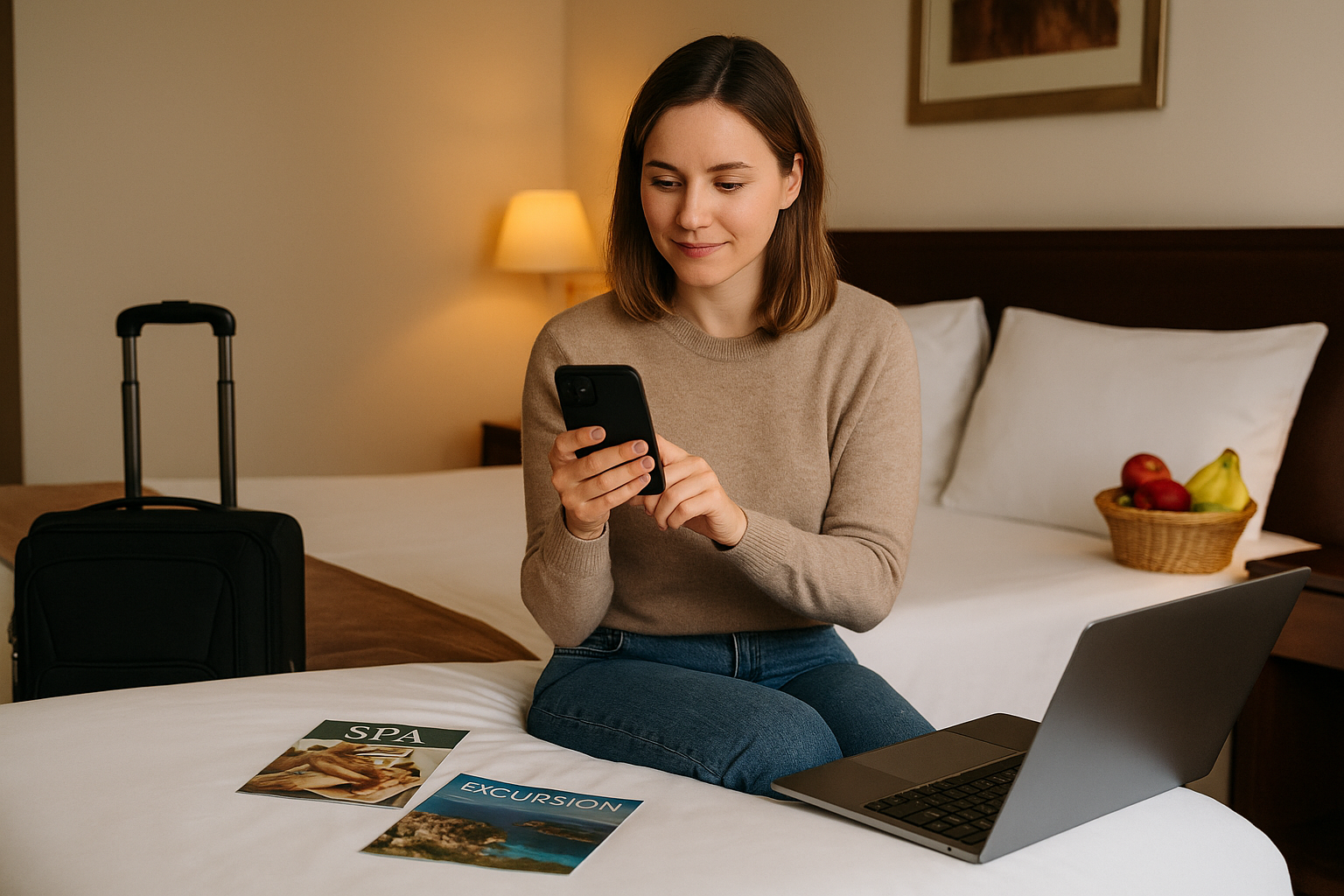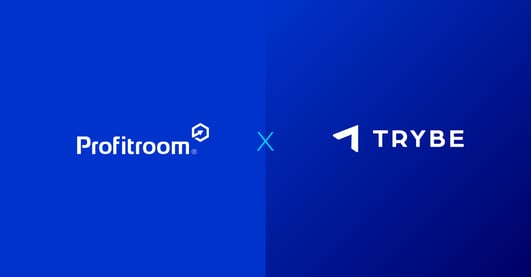💬 Guest article by Samantha Williams, Chief Customer Officer at Profitroom
I've always been passionate about people. It's what got me into hospitality in the first place. Growing up in Cornwall, where tourism drives everything, I thought I understood what guests wanted. Room, bed, breakfast. Simple.
I was wrong.
Eighteen years ago, I was manually updating hotel rates and closing out channels and accepting bookings by fax machine. The work was tedious, but it taught me something invaluable: I could see exactly how disconnected our operations were from what guests actually needed.
Today, I watch hoteliers sit on gold mines of guest data while still sending the same generic "dear guest" email to their entire database. The tools have evolved dramatically, but the thinking hasn't. Most hotels are still selling rooms when guests want to buy experiences.
Guests are already buying differently
In mature tech markets like the Nordics, only 25% of booking value comes from the actual room. The remaining 75% is spent on excursion, activities, spa treatments, dining experiences and other services such as airport transfers or excursions. Guests are curating their entire journey long before they check in.
This shift is happening everywhere, but hotels aren't keeping up. Time after time, even among large hotel groups with access to sophisticated tools, I see the same thing: generic emails blasted to everyone. In South Africa alone (where Profitroom works with 70–80% of group hotels), at least three-quarters still send one-size-fits-all messages. A business traveller gets the same family-friendly newsletter as parents planning a safari, even though they have live segmentation tools sitting unused.
It’s easy for hoteliers to say they’re too short on resources or that change is complicated, but the biggest barrier isn’t budget or complexity. It’s actually a mindset issue.
The booking journey has completely changed
The typical guest these days doesn’t stumble onto your website by accident. When they reach your website, they've already seen your brand up to seven times. They've compared on Booking.com, done a branded search on Google, checked TripAdvisor reviews. By the time they land on your direct channel, they're not looking for a room, they're looking for reasons to choose you over an OTA.
This is where hotels can differentiate, but most waste the opportunity. While third-party sites sell commoditised rooms, direct channels can sell personalised experiences. The data tells us exactly what guests want because we can see their behaviour in real-time.
Business travellers typically add airport transfers and breakfast. Leisure guests buy dining experiences and activities: feeding giraffes, water safaris, whatever makes their stay shareable on Instagram. In many markets, experiences are now the biggest revenue drivers.
Yet most hotels present a static booking page with a room rate and hope for the best.
Segmentation unlocks relevance (and revenue)
Personalisation isn’t rocket science anymore. It can be automated at scale if you’re willing to shift perspective from “how we’ve always done things” to “how can we serve this guest best?”
For example:
- A search for family rooms automatically places someone into a family segment.
- Monday-to-Friday solo bookings? They belong with business travellers.
- International versus domestic? Show credit cards for overseas visitors; M-Pesa for Kenya or EFTs for South Africans who prefer local payment methods.
We can automate all of this now. Different payment methods for different markets, different messaging for different segments, different booking conditions based on guest type. The technology handles the heavy lifting, but hotels need to want better guest experiences first.
I've seen what happens when hotels embrace this approach. Better engagement rates, more direct bookings, higher guest satisfaction. One client saw dramatic improvements just by segmenting their email campaigns, something that takes minutes to set up but requires overcoming years of "we've always done it this way" thinking.
But even perfect segmentation fails without systems that talk to each other
Here's where many hotels lose the thread: their systems don't talk to each other. I'll see eight different "Samantha Williams" profiles in one hotel's database because I've booked through different channels. Legacy systems duplicate everything, creating data chaos that makes personalisation impossible.
Seamless integration means every system feeds into one source of truth so teams can actually act on insights rather than spend hours wrestling spreadsheets or reconciling conflicting reports.
With integrated tech stacks:
- Guest preferences carry forward automatically
- Loyalty benefits apply instantly
- Upsell opportunities present themselves without manual intervention
And ultimately, you stop leaving money on the table simply because your back-end doesn’t match your front-of-house ambitions!
Listen to what guests actually want
At Profitroom, over 75% of our R&D roadmap comes from hotel partner feedback. Are hotels doing the same with their guests?
Too often I see properties collect mountains of guest information only for it sit unused except as vanity metrics (“look how many emails we sent!”).
The research shows guests want instant rewards, not complex points programmes. Think of loyalty differently, if you removed your rewards would your guests still book with you? That’s true loyalty. Your brand, your experience and the feeling you give to your guests is your loyalty driver. They want recognition when they return - "Welcome back, Mrs. Williams, your cabana by the pool is ready and there’s a bottle of your favorite wine in the room" - not generic discount codes. Most importantly, they want experiences worth sharing.
When hotels get this right, guests rebook within seven days of checkout. That's the power of creating memories instead of just providing accommodation.
Change starts inside, with mindset
Ultimately technology will keep evolving, but unless leaders change how they think about what they're truly offering (not accommodation but curated journeys), all those investments risk gathering digital dust while competitors leap ahead catering directly to rising expectations.
So ask yourself: Are you still selling rooms…or are you inviting guests into stories worth telling? Because right now, the greatest untapped opportunity isn't another system upgrade…it's seeing every stay as something worth remembering.
After twenty years in this industry, I'm certain of one thing: guests remember how you made them feel, not just where they slept.
Stop selling rooms. Start creating stories worth sharing. Discover how your hotel can use segmentation, personalisation and seamless integrations to delight guests, and grow revenue.
-Mar-11-2025-10-07-16-4716-AM.jpg?width=2000&name=Reception%20with%20Guest_00125%20(3)-Mar-11-2025-10-07-16-4716-AM.jpg)
















